Domestic Violence
Domestic Violence
What is the problem?
Domestic violence and gun violence are deeply interconnected, impacting millions of women, families, and communities across the US. Guns are more likely to turn abuse fatal.
In the US, the crisis of domestic violence is closely linked to the widespread and growing use of guns by abusers. The majority of women killed by an intimate partner are killed with a gun.1Everytown Research analysis of CDC, National Violent Death Reporting System (NVDRS), 2021. Analysis includes firearm homicides involving an intimate partner and women 18 years and older. See also, Everytown for Gun Safety Support Fund, “EveryStat: United States,” https://everystat.org/. Existing loopholes in federal and state law allow access to guns by abusive partners and stalkers, often with deadly results. Common-sense laws that keep guns out of the hands of abusive partners can reduce gun violence and domestic violence.2April M. Zeoli et al., “Analysis of the Strength of Legal Firearms Restrictions for Perpetrators of Domestic Violence and Their Associations with Intimate Partner Homicide,” American Journal of Epidemiology 187, no. 11 (November 2018): 2365–71, https://doi.org/10.1093/aje/kwy174; Carolina Diez et al., “State Intimate Partner Violence-Related Firearm Laws and Intimate Partner Homicide Rates in the United States, 1991 to 2015,” Annals of Internal Medicine 167, no. 8 (October 2017): 536–43, https://doi.org/10.7326/M16-2849; April M. Zeoli and Daniel W. Webster, “Effects of Domestic Violence Policies, Alcohol Taxes, and Police Staffing Levels on Intimate Partner Homicide in Large US Cities,” Injury Prevention 16, no. 2 (2010): 90–95, https://injuryprevention.bmj.com/content/16/2/90; Maeve E. Wallace et al., “Firearm Relinquishment Laws Associated with Substantial Reduction in Homicide of Pregnant and Postpartum Women,” Health Affairs 40, no. 10 (2021): 1654–62, https://doi.org/10.1377/hlthaff.2021.01129.
What are the solutions?
-
Background Checks on All Gun Sales
Background checks are the foundation of any comprehensive gun violence prevention strategy. Current federal law requires that background checks be conducted whenever a person attempts to buy a gun from a licensed gun dealer. This is to ensure that the buyer is not legally prohibited from having the gun. Since federal law began requiring these background checks in 1994, background checks have blocked millions of sales to people with felony convictions or other prohibiting histories.
-
Prohibit People With Dangerous Histories From Having Guns
People with dangerous histories should be prohibited from having guns. Federal law prohibits gun possession by certain categories of people. States also set standards for who is too dangerous to have guns. People prohibited by federal or state law will fail a background check if they try to buy a gun from a licensed dealer.
-
Require Prohibited People to Turn in Their Guns
Requiring people to turn in their guns when they become legally prohibited from having them helps keep guns out of the wrong hands. Under federal law, there is no affirmative requirement that people who are prohibited from having guns turn in firearms that they already have.
-
Close the Charleston Loophole
Under federal law, gun purchases may move forward by default after three business days—even if a background check has not been completed. While more than 90 percent of federal background checks are completed in minutes, those that take longer than three business days are four times as likely to be denied.
-
Alert Local Law Enforcement of Failed Background Checks
The National Instant Criminal Background Check System (NICS) stops thousands of convicted felons, domestic abusers, and other prohibited people from buying guns each year. Potential purchasers often fail NICS background checks and walk away with no consequences, free to try to arm themselves in other ways.
Featured Resources

Dual Tragedies: Domestic Homicide-Suicides with a Firearm
Guns are the centerpiece of the dual tragedies of intimate partner homicide and suicide. We must reduce abusers’ access to guns.
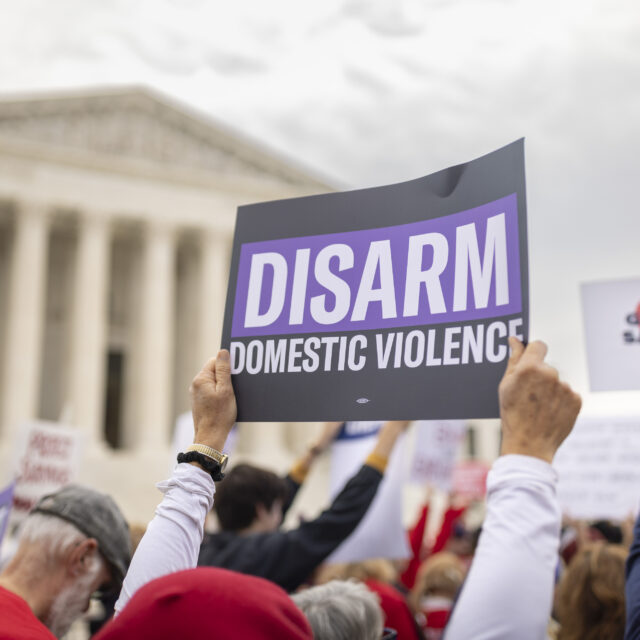
Ensuring Effective Implementation of Laws that Disarm Domestic Abusers
Many states have not fully implemented laws that disarm domestic abusers, leaving survivors at risk.

Misogyny, Extremism, and Gun Violence
The impact of violent misogyny, combined with the unique harm of violence involving guns, makes addressing it an urgent issue.
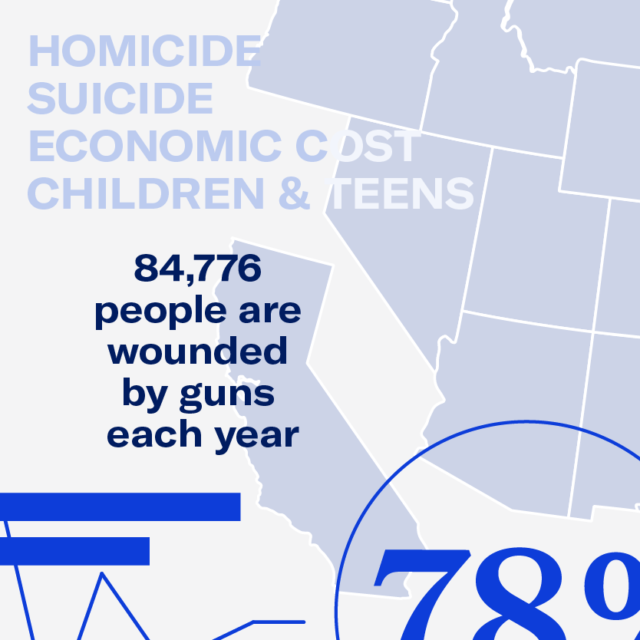
EveryStat: Gun Violence Data in Your Community
See how gun violence impacts communities by state, county, race and ethnicity, gender, and intent.

Guns and Violence Against Women: America’s Uniquely Lethal Intimate Partner Violence Problem
Laws keeping guns out of the hands of abusers are associated with lower rates of violence against women and intimate partner homicides.
All Resources
Domestic Violence
All Resources
Champions at Work: Extreme Risk Protection Orders in Action
ERPO champions share their insights on how to effectively implement extreme risk laws.
Case StudyHow Guns Fuel Violence Against Transgender People in America
Black trans women are bearing the brunt of a crisis of gun violence, often at the hands of perpetrators who are prohibited from owning guns.
Report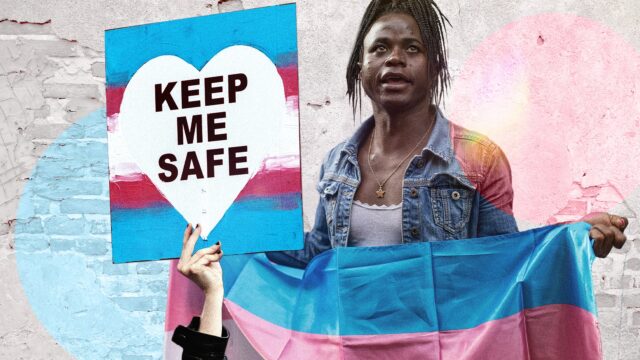
Preventing Gun Violence by Investigating Attempted Gun Purchases by Domestic Abusers
Introduction Under federal and state law, certain individuals are prohibited from buying and possessing firearms because of their history of certain criminal convictions, restraining orders,…
Report
Everytown Resource Guide for Survivors of Domestic and Intimate Partner Violence
Fact SheetFreedom from Fear of Hate-Fueled Violence: Preventing Transgender Homicides
The statistics make it clear: violence against transgender people is a gun violence issue.
ReportPromising Approaches for Implementing Extreme Risk Laws: A Guide for Practitioners and Policymakers
This guide details the best available practices and promising approaches to effective implementation of extreme risk laws.
Report
Sobrevivientes de violencia con armas de fuego en los Estados Unidos
Esta encuesta explora la amplitud de la violencia con armas de fuego en los Estados Unidos y su impacto en los sobrevivientes.
Report
Gun Violence Survivors in America
This survey explores the breadth of gun violence in America and how it impacts survivors.
Report
When the Shooting Stops: The Impact of Gun Violence on Survivors in America
The trauma of gun violence doesn’t end when the shooting stops. Experiencing gun violence has a lasting impact on survivors.
Report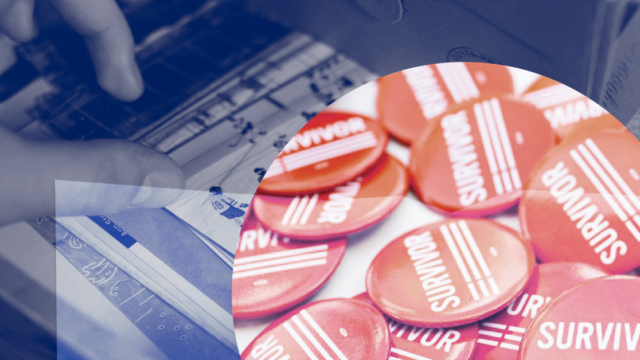
Cuando el tiroteo se detiene: El impacto de la violencia con armas de fuego en los sobrevivientes de los Estados Unidos
El trauma de la violencia con armas de fuego no termina cuando se detiene el tiroteo.
Report
Hurdles to Healing: Fixing Victim Compensation Funds
Victim compensation funds are available to survivors of gun violence, but obstacles and restrictions make the funds difficult to access
Fact Sheet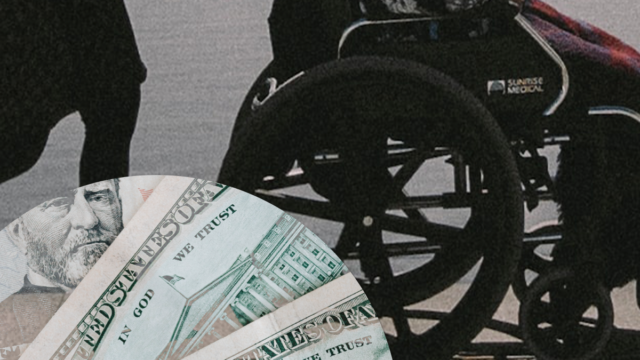
Gun Violence in America
We have gathered the most comprehensive, publicly available data to illustrate the magnitude of everyday gun violence.
Report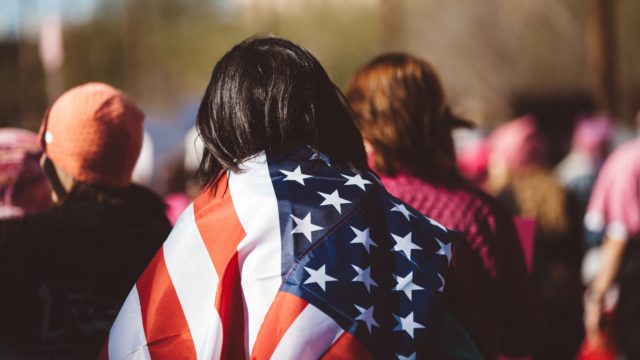
Extreme Risk Laws Save Lives
Extreme Risk laws, or “red flag” laws, empower family or police to intervene and temporarily prevent someone in crisis from accessing guns.
Fact Sheet
Examples of How Extreme Risk Laws Save Lives
These stories illustrate the importance of Extreme Risk legislation in removing firearms from dangerous situations.
Case StudyA Fund for Healing: VOCA Grants for Violence Reduction
The Needs Of Gun Violence Victims In America America’s gun homicide rate is tragic and unique—it is 26 times higher than…
ReportDomestic Violence and Firearm Surrender in Rhode Island
Since the law was enacted, there has been a seven-fold increase in the number of domestic abusers who were ordered to surrender their guns.
Report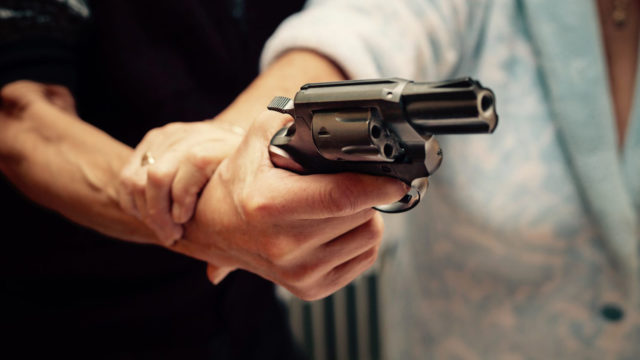
City Gun Violence Reduction Insight Portal
CityGRIP is an online clearinghouse of data-informed gun violence reduction strategies.
Data Tracker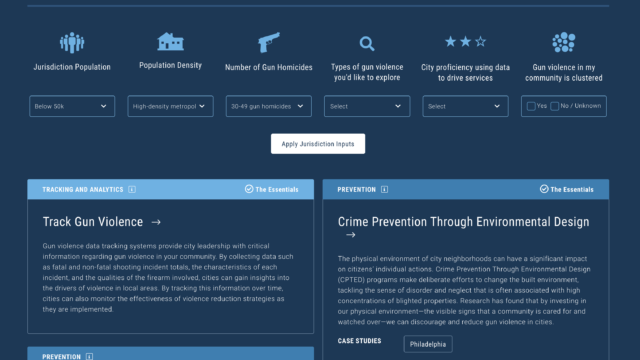
Domestic Abuse Protective Orders and Firearm Access in Rhode Island
Background: Limiting Abusers’ Access To Firearms Domestic abuse affects the lives of thousands of Rhode Islanders. According to the Rhode Island Judiciary Administration, police responded…
Report
